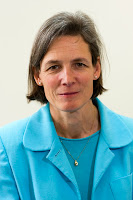Amongst the
many initiatives, Professor Don Berwick, a veteran of the healthcare quality
movement in the US and former adviser to President Obama, has been invited to report
on ‘a whole system approach to make zero harm a reality in the NHS’ (1).
For over
twenty years, Berwick has been a leader in the field of health improvement,
looking at how services can improve to make care better, safer and more
efficient. His work at the Institute of Health Improvement has made a major
contribution to understanding quality and safety in health care.
At a recent
lecture at the Kings Fund in London (2), Berwick suggested that the UK health
and social care system, like the US system, needed radical solutions if we are
to achieve ‘better care, better health and lower cost’. Besides the economic
pressures, which are considerable, he talked about the public and the
professions being ‘confused’ about what the future of health care delivery
would look like. Patients and their carers worry that changes will mean a loss
of services, and the professions are unsure about what kind of practice they
will have in the future. At a political level, in the US at least, Berwick
spoke of a loss of authentic dialogue about exactly what changes will deliver
better outcomes.
A quietly
spoken man with a powerful combination of conviction and experience, Berwick’s
vision had a moral dimension – with a challenge to professionals to focus on
the needs of the vulnerable in society. He suggested that, in the future, care
must be less centred on hospitals, and be much more community based. He saw the
future of care delivered in teams made up of individuals with ‘an expanding
scope of practice’, able to meet the needs of local populations, using new
technologies and advocating a new approach to involving service users in the
decisions about their own care.
Berwick
illustratated his vision with examples of innovative care in the US, many of these based on integrated teams, with
little or no heirarchy, and much less doctor-focused than our current systems
advocate. He said the first rule of change is to cooperate. The training of
health care professionals must include
‘process improvement, courage, transparency and openess and above all
cooperation’.
These are
huge ideas, and huge challenges, but arguably they articulate what many people
in the UK already recognise. When HCPC
was established over 12 years ago, there was resistance to the idea of an
integrated system of professional regulation – where all professions were
subject to the same regulatory processes, one register, one fitness to practise
process, shared standards and one Board with oversight of all.
Today, the
HCPC is seen as an effective and efficient regulator of 16 health,
psychological and social work professions. It may well be a model for the
future which Berwick describes.
Chair
HCPC
Notes
1) Department of Health (2013) Patients
first and foremost: the intial government response to the Report of the mid
Staffordshire NHS Foundation Trust Public Inquiry
2) Don Berwick (2013) The role of
clinical leaders. Kings Fund lecture, 16 April 2013. www.kingsfund.org.uk


The medical profession is amongst the most important careers in the globe providing healthcare assistance. Health and wellness is a primary concern of every individual, thus this profession continues to be in demand. What if the fitness to practise of these professionals becomes impaired? To whom will they seek assistance and guidance?
ReplyDelete